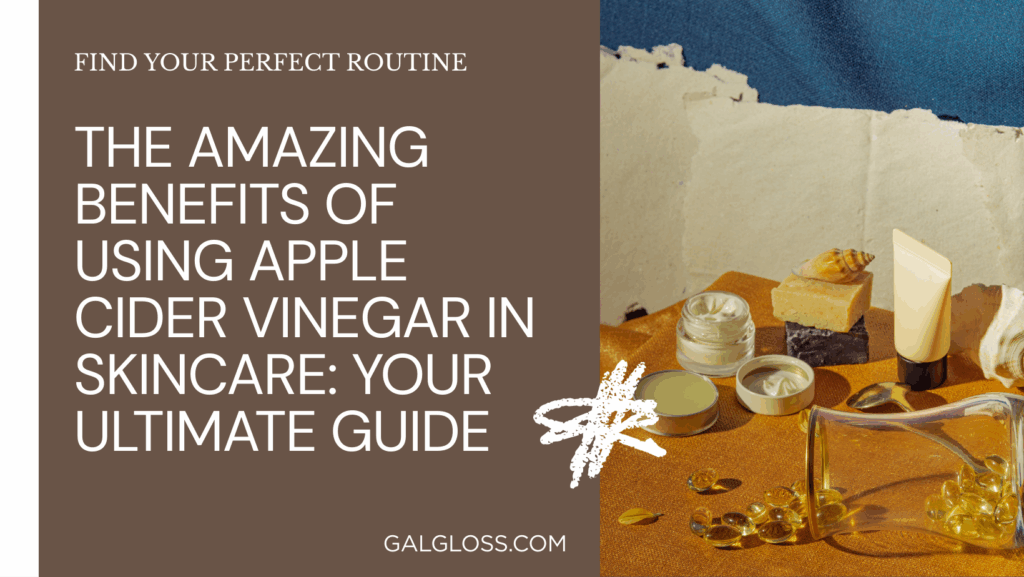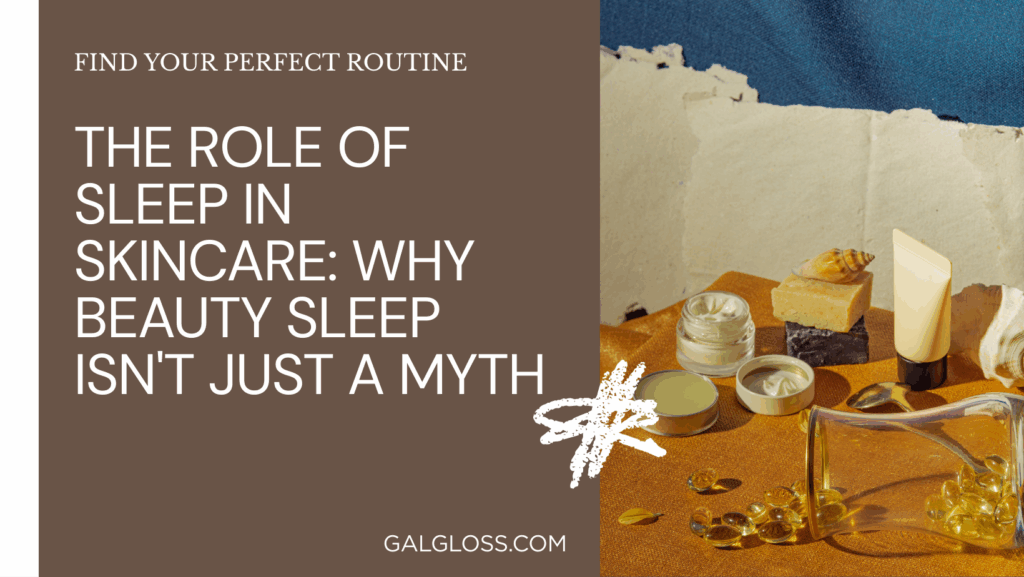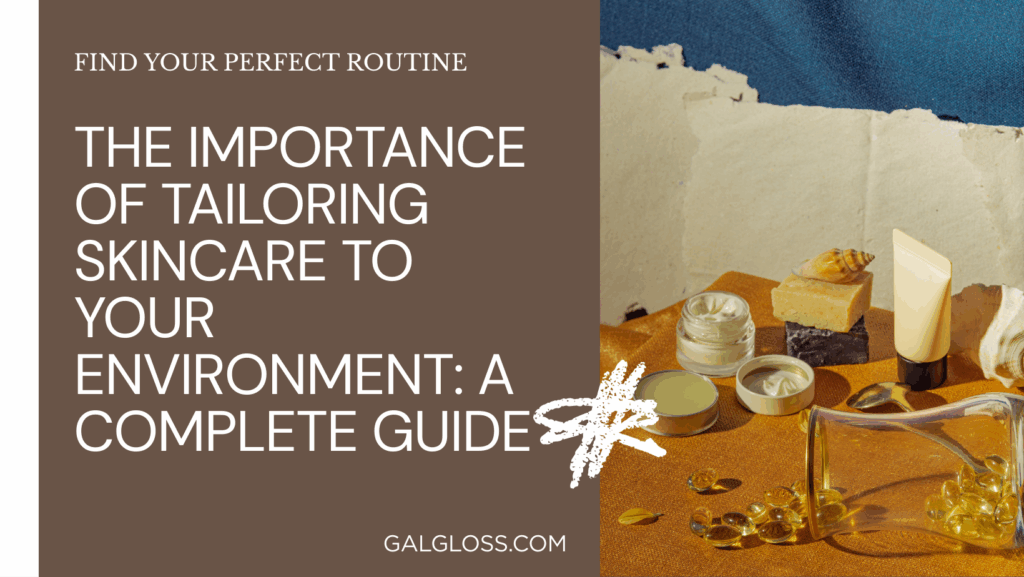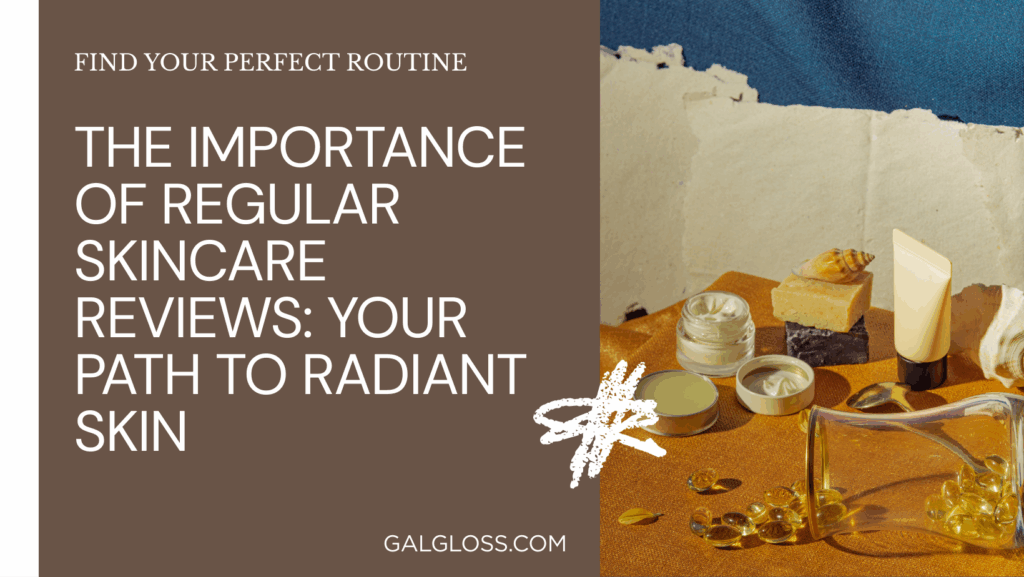Ever thought about putting vinegar on your face? I know, it sounds crazy, right? But hear me out – we’re not talking about just any vinegar. We’re diving into the world of apple cider vinegar (ACV) and its incredible benefits for your skin.
You’ve probably seen ACV popping up everywhere lately, from your local health food store to your favorite beauty guru’s Instagram. But what’s all the fuss about? Well, buckle up, because we’re about to explore why this humble kitchen staple is becoming a skincare superstar.
What’s the Deal with Apple Cider Vinegar?

Let’s start with the basics. Apple cider vinegar is basically fermented apple juice. Yeast turns the sugar in apple juice into alcohol, and then bacteria turn that alcohol into acetic acid. The result? A tangy, slightly sweet vinegar that’s packed with good-for-you stuff.
People have been using ACV for centuries, not just in cooking, but for all sorts of health and beauty purposes. Our grandmas knew what was up! But it’s only recently that science has started to back up what tradition has long claimed – that ACV can work wonders for your skin.
The Science Behind ACV’s Skincare Magic
So, what makes ACV so special for our skin? It’s all about the chemical composition:
- Acetic acid: This is the star of the show. It’s antibacterial and helps balance skin pH.
- Malic acid: An alpha-hydroxy acid (AHA) that gently exfoliates.
- Vitamins and minerals: Including vitamin C and B vitamins that nourish the skin.
- The “mother”: This cloudy sediment is full of beneficial bacteria and enzymes.
When you apply ACV to your skin, it interacts with your skin’s natural barrier, helping to restore balance and promote healthy function. It’s like a reset button for your complexion!
Top 10 Benefits of Apple Cider Vinegar for Skin
Ready to be amazed? Here are the top ways ACV can transform your skin:
- Acne-fighting powerhouse: ACV’s antibacterial properties help kill acne-causing bacteria, while its pH-balancing effect can reduce oiliness.
- Natural exfoliation for glowing skin: The malic acid in ACV acts as a gentle exfoliant, sloughing off dead skin cells to reveal brighter, fresher skin underneath.
- Balancing skin’s pH levels: Our skin is naturally slightly acidic. ACV helps maintain this optimal pH, which can be disrupted by harsh cleansers.
- Reducing appearance of age spots and sun damage: The alpha-hydroxy acids in ACV may help fade dark spots and even out skin tone over time.
- Minimizing pores and controlling oil production: As an astringent, ACV can tighten pores and regulate sebum production, great news for oily skin types!
- Boosting collagen production for youthful skin: Some studies suggest that ACV might stimulate collagen production, helping to keep skin firm and youthful.
- Soothing inflammation and redness: Got sensitive or irritated skin? ACV’s anti-inflammatory properties might help calm things down.
- Fighting harmful bacteria on skin: The acetic acid in ACV has antimicrobial properties that can help keep your skin’s microbiome in check.
- Evening out skin tone and texture: Regular use of ACV can lead to smoother, more even-toned skin over time.
- Detoxifying and purifying the skin: ACV can help draw out toxins and impurities, leaving your skin feeling fresh and clean.
How to Incorporate ACV into Your Skincare Routine
Ready to give ACV a try? Here are some easy ways to add it to your routine:
DIY ACV Toner Recipe
- Mix 1 part ACV with 2 parts water (adjust ratio for sensitive skin)
- Apply with a cotton pad after cleansing
- Follow with your usual moisturizer
ACV Face Mask for Deep Cleansing
- Mix 1 tbsp ACV, 1 tbsp honey, and 1 tsp clay powder
- Apply to face, leave for 10-15 minutes, then rinse
Spot Treatment for Blemishes
- Dab a tiny amount of diluted ACV directly on spots
- Leave overnight and rinse in the morning
ACV Hair Rinse for Scalp Health
- Mix 1/4 cup ACV with 1 cup water
- Pour over hair after shampooing, rinse after a few minutes
Potential Side Effects and Precautions
Before you go all-in with ACV, keep these tips in mind:
- Always dilute ACV before applying to skin
- Do a patch test first to check for sensitivity
- Start with once or twice a week and gradually increase frequency
- Avoid if you have open wounds or very sensitive skin
- If irritation occurs, stop use immediately
Choosing the Right ACV for Skincare
Not all apple cider vinegar is created equal! Here’s what to look for:
- Raw, unfiltered ACV is best
- Look for organic options to avoid pesticides
- Choose ACV “with the mother” for maximum benefits
- Avoid clear, filtered ACV which lacks many beneficial compounds
Comparing ACV to Other Natural Skincare Ingredients
How does ACV stack up against other natural skincare faves?
- ACV vs. Lemon Juice: Both are acidic and brightening, but ACV is gentler and less likely to cause irritation.
- ACV vs. Witch Hazel: Both are astringent, but ACV offers additional exfoliating and pH-balancing benefits.
- ACV vs. Tea Tree Oil: Both have antibacterial properties, but ACV is more moisturizing and less likely to dry out skin.
Frequently Asked Questions About ACV in Skincare
Got questions? We’ve got answers!
Q: Can ACV help with wrinkles? A: While not a miracle cure, ACV may help improve skin texture and boost collagen production, potentially reducing the appearance of fine lines over time.
Q: Is ACV safe for sensitive skin? A: It can be, but always dilute it well and do a patch test first. Start with a very small amount and gradually increase if your skin tolerates it.
Q: How often should I use ACV on my skin? A: Start with 1-2 times a week and increase gradually. Most people find 3-4 times a week works well, but listen to your skin!
Q: Can I leave ACV on my face overnight? A: It’s generally best to rinse off ACV after a few minutes, especially when you’re starting out. Once your skin is accustomed to it, you might try leaving a diluted toner on overnight.
Q: Will ACV make my skin smell like vinegar? A: The smell usually dissipates quickly after application. If it bothers you, try adding a few drops of your favorite essential oil to your ACV mixture.
Real People, Real Results
Don’t just take my word for it – here’s what some ACV skincare converts have to say:
“I’ve struggled with acne for years, but after adding an ACV toner to my routine, my skin has never been clearer!” – Sarah, 28
“I was skeptical at first, but ACV has really helped balance out my combination skin. No more oily T-zone!” – Mike, 35
“As someone with sensitive skin, I was worried about trying ACV. But starting with a very diluted mix has worked wonders for my redness.” – Emma, 42
Conclusion: Is ACV the Secret to Glowing Skin?
So, there you have it – the lowdown on why apple cider vinegar is making waves in the skincare world. From fighting acne to fading dark spots and balancing skin pH, ACV is a true multitasker that deserves a spot in your beauty routine.
Remember, though, that everyone’s skin is different. What works like magic for one person might not be the best fit for another. The key is to start slow, listen to your skin, and adjust as needed.
Ready to give ACV a try? Why not start with a simple toner and see how your skin responds? You might just discover that the secret to glowing, balanced skin has been sitting in your kitchen all along!
And hey, even if you decide ACV isn’t for you, at least you can use it to make a killer salad dressing. Win-win, right?
So go ahead, give apple cider vinegar a shot in your skincare routine. Your skin (and maybe your taste buds) will thank you!





